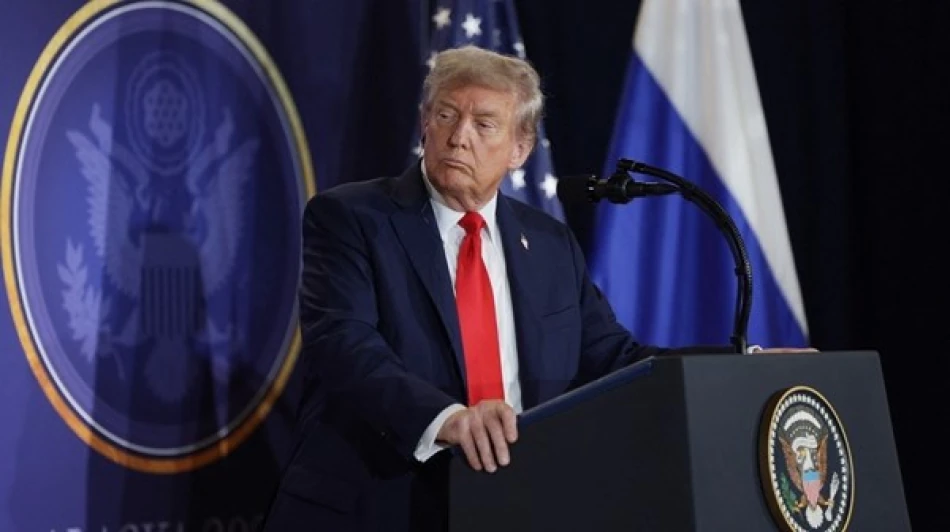
Trump Solidifies US Military Stance on Ukraine Conflict
Trump Rules Out US Troops for Ukraine, Calls NATO Membership and Crimea Recovery "Impossible"
President Donald Trump delivered his clearest signal yet that any Ukraine peace deal will require significant territorial and strategic concessions from Kyiv. In a Tuesday morning television interview, Trump explicitly guaranteed that US forces would not defend Ukrainian borders while declaring Ukraine's NATO aspirations and hopes of reclaiming Crimea as "impossible" — effectively telegraphing the contours of his anticipated diplomatic approach.
A Sharp Reversal on Military Commitment
Trump's categorical assurance that American troops would not be deployed to defend Ukraine marks a notable shift from his previous ambiguous stance. When pressed on Fox & Friends about guarantees that US forces would not be part of Ukraine's defense, Trump responded: "Well, you have my guarantee, and I am the president."
This definitive statement removes a key source of uncertainty that had lingered since his return to office, providing both Moscow and Kyiv with clear parameters about American military involvement. The clarification likely reflects internal administration discussions about the realistic scope of US commitments in Eastern Europe.
Strategic Concessions as Negotiating Reality
Trump's blunt assessment that Ukraine must abandon both NATO membership hopes and Crimea recovery efforts represents a fundamental recalibration of Western objectives in the conflict. By calling these goals "impossible," Trump is essentially acknowledging Russia's red lines while setting expectations for Ukrainian concessions.
The Crimea Calculation
Crimea's status has remained one of the most intractable issues since Russia's 2014 annexation. Ukraine has consistently maintained that any peace agreement must include full territorial restoration, while Russia considers the peninsula non-negotiable. Trump's characterization suggests his administration views Crimea as a acceptable loss in exchange for broader conflict resolution.
NATO Membership Off the Table
Ukraine's NATO aspirations have been a central driver of Russian opposition since the alliance's 2008 Bucharest Summit declaration that Ukraine would eventually join. Trump's dismissal of these hopes removes what Moscow has long considered an existential threat, potentially creating space for diplomatic progress.
Market and Geopolitical Implications
Trump's statements provide crucial clarity for defense contractors, energy markets, and European allies who have been recalibrating strategies around potential US policy shifts. Defense stocks may face pressure as prospects for sustained high military aid levels diminish, while European energy markets could see volatility as the possibility of normalized Russia-Europe relations becomes more concrete.
For NATO allies, particularly those in Eastern Europe, Trump's approach signals they may need to assume greater responsibility for regional security architecture without relying on expanded American commitments.
Optimism Amid Harsh Realities
Despite outlining significant Ukrainian concessions, Trump expressed optimism about reaching a peace agreement. This confidence suggests his administration believes Russia may be receptive to negotiations if core demands around NATO expansion and territorial control are addressed.
The approach mirrors Trump's broader foreign policy philosophy of accepting geopolitical realities rather than pursuing idealistic objectives, even when those realities involve authoritarian territorial gains. Whether this pragmatic calculation can produce sustainable peace — or merely pause the conflict — will define the success of his diplomatic gambit.
Most Viewed News

 Layla Al Mansoori
Layla Al Mansoori






